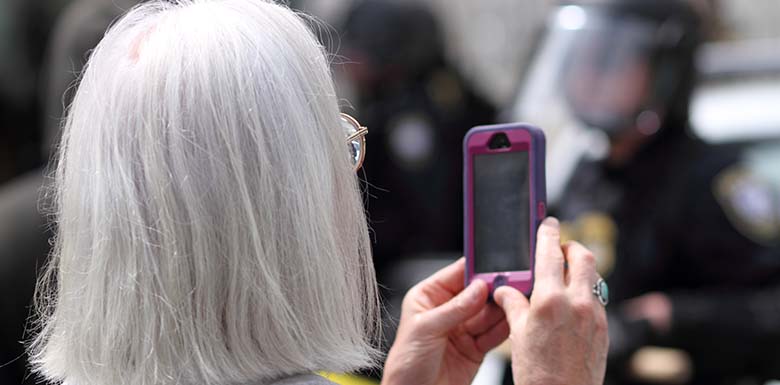Can I Legally Record the Police in North Carolina?
On behalf of Randall & Stump, PLLC in Blog, Civil Rights on Wednesday, March 8, 2023

Startling evidence of police misconduct and brutality has come to light in recent years. This is largely thanks to social media and smartphones, allowing citizens to take photos and videos of incidents and share them easily.
Many police officers in North Carolina wear body cameras, but the footage is not public record. Although recent criminal justice reform bills have aimed to make body-worn camera footage more accessible, doing so can be a complicated and lengthy process. That’s why the accessibility and prevalence of smartphones is helpful in holding police officers accountable.
However, you may wonder if you are within your rights or could get in trouble for attempting to record the police in North Carolina.
Yes, You Can Record Police Interactions in North Carolina
Questions around the legality of filming police were circulated in courts for years with varying answers among states. But in 2011, the Supreme Court ruled in Glik v. Cunniffe that recording police interactions in public spaces is a “clearly established right” for all citizens under the First Amendment. You are legally allowed to take photos and videos of police if you are stopped or pulled over.
Your Rights When Recording the Police
You have the right to record the police in any public place in North Carolina. This includes the following:
- Retail and commercial properties
- Public parks
- Streets and sidewalks
- Police stations
- Municipal buildings
However, you may not record in places with an expectation of privacy, such as restrooms or changing rooms. You also may not interfere or attempt to intervene in police enforcement actions.
What Can’t the Police Do While Being Filmed?
The police may try to intimidate anyone recording them and attempt to stop bystanders from sharing information on their activity. However, officers don’t have the ability to do so, and they cannot keep you from filming.
Confiscating your phone or asking to search it without a warrant would constitute a violation of your Fourth Amendment right against unreasonable search and seizure.
They can, however, ask you to step back or maintain a safe distance from the incident you’re recording. If you’re instructed to move away, do so, but don’t stop filming. By showing you know your constitutional rights and remaining polite but firm, the officer will likely back down.
What to Do if Police Confront You for Recording
If an officer stops you for taking photos or video, follow these guidelines to protect yourself:
- Remain calm, be respectful, and don’t physically resist
- Ask for the officer’s identifying information, such as their name and badge number
- Ask, “am I free to go?” If the officer responds no and they don’t have a reasonable suspicion you are committing a crime or are about to, you are being unlawfully detained. Police stops are lawful and voluntary until you ask to leave.
- If you are detained, ask what crime you are suspected of committing and remind the officer that taking photos and videos in any public space is protected under the First Amendment.
Have Questions about Your Rights? Call Randall & Stump
Smartphone recordings of police activity can provide powerful proof of wrongful officer behavior and enforce accountability, and you are well within your rights to film an officer in public. If you are wrongfully detained or mistreated by police for recording their activity, you should immediately contact a criminal lawyer in Charlotte, NC who can ensure your rights are protected. The police abuse their authority to violate Constitutional rights; however, they are not above the law.
Randall & Stump, Criminal Defense Attorneys has a team of legal professionals ready to work on your case. Call us today at (980) 237-4579 or use our online contact form to schedule a free initial consultation.
